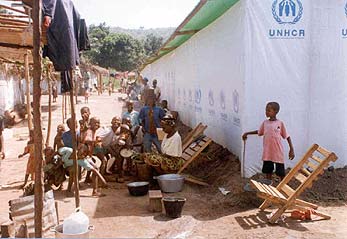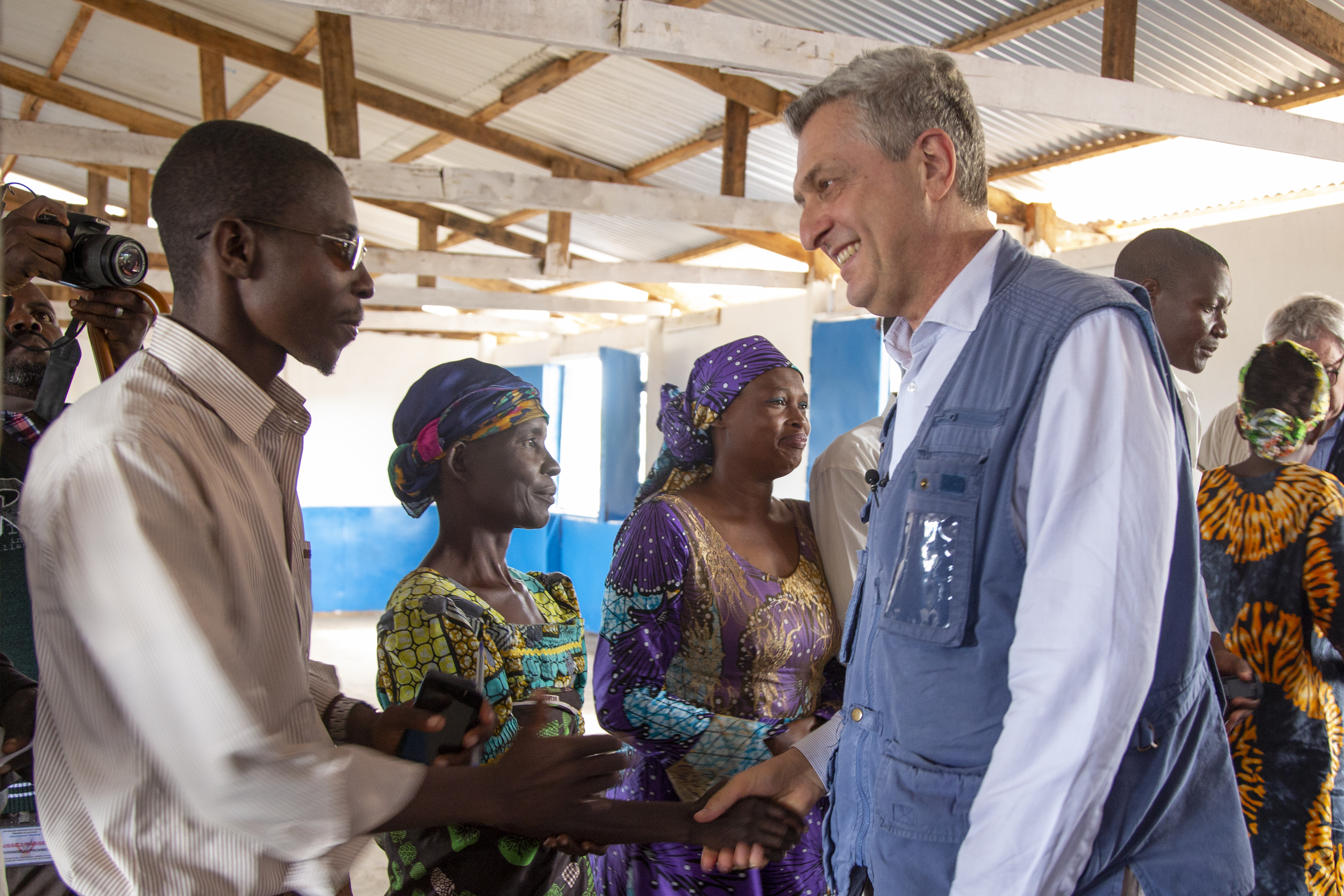Central African refugees flee for DR Congo; UNHCR warns of potential ethnic tensions
Central African refugees flee for DR Congo; UNHCR warns of potential ethnic tensions

ZONGO, Democratic Republic of the Congo, October 29 (UNHCR) - As weekend fighting in the Central African Republic (CAR) sent small groups fleeing into the Democratic Republic of the Congo (DRC) on Monday, UNHCR has expressed concerns that ethnic tensions could arise between the new arrivals and existing refugees.
On Monday, rebels of MLC (Mouvement pour la Libération du Congo), who control Equateur province in north-eastern DRC, reported that a number of Central African nationals - including some unaccompanied minors - had arrived in the Congolese neighbourhoods of Maba and Gbadoke following weekend fighting and aerial bombing in CAR's capital, Bangui.
There were rumours that some refugees were barred from crossing into the DRC, supposedly by unidentified armed elements.
The UNHCR office in Zongo, DRC, has obtained agreement from the rebel MLC authorities to open a humanitarian corridor for a possible further influx of CAR asylum seekers to Zongo. Food, water and other basic commodities for the new arrivals are due to arrive from Kinshasa to Zongo on Wednesday.
On Tuesday, a joint mission by the UN refugee agency and MLC was scheduled to travel to Maba and Gbadoke to assess the situation. UNHCR is planning to open three registration centres in Zongo to record the new arrivals and get information about their ethnic profile.
The new arrivals' ethnicity is an issue because there are presently 3,400 Central African refugees from the Yakoma ethnic group living in Mole camp, 35 km from Zongo. Another 576 former combatants of the same ethnic background are hosted at Bokilio, 100 km from Zongo. If refugees from the Kaba ethnic group - the same as CAR President Patassé - arrive in the DRC with this influx, there are fears that the ethnic mix could trigger tensions in the country.
To prevent potential clashes, UNHCR has said it will screen and separate refugees from the rival groups, and weed out armed elements from the civilian population at an existing transit centre in Zongo. The centre has been revamped with new tarpaulin and can accommodate 200 people.
Some 40 Central African refugees who had recently gone home to Bangui have reported back in Mole camp. Significant numbers of Congolese nationals are also reported to have crossed into Zongo overnight. They were reportedly forced to flee an area of Bangui, now said to be under rebel control, after Central African citizens blamed them for the alleged MLC support for President Patassé.
The UN refugee agency is also concerned about some 10,000 urban refugees in Bangui from the DRC, Chad, Burundi and Rwanda, many of whom lived in the disputed northern districts of the capital. The agency has not been able to trace their whereabouts and cannot confirm if they are safe.








